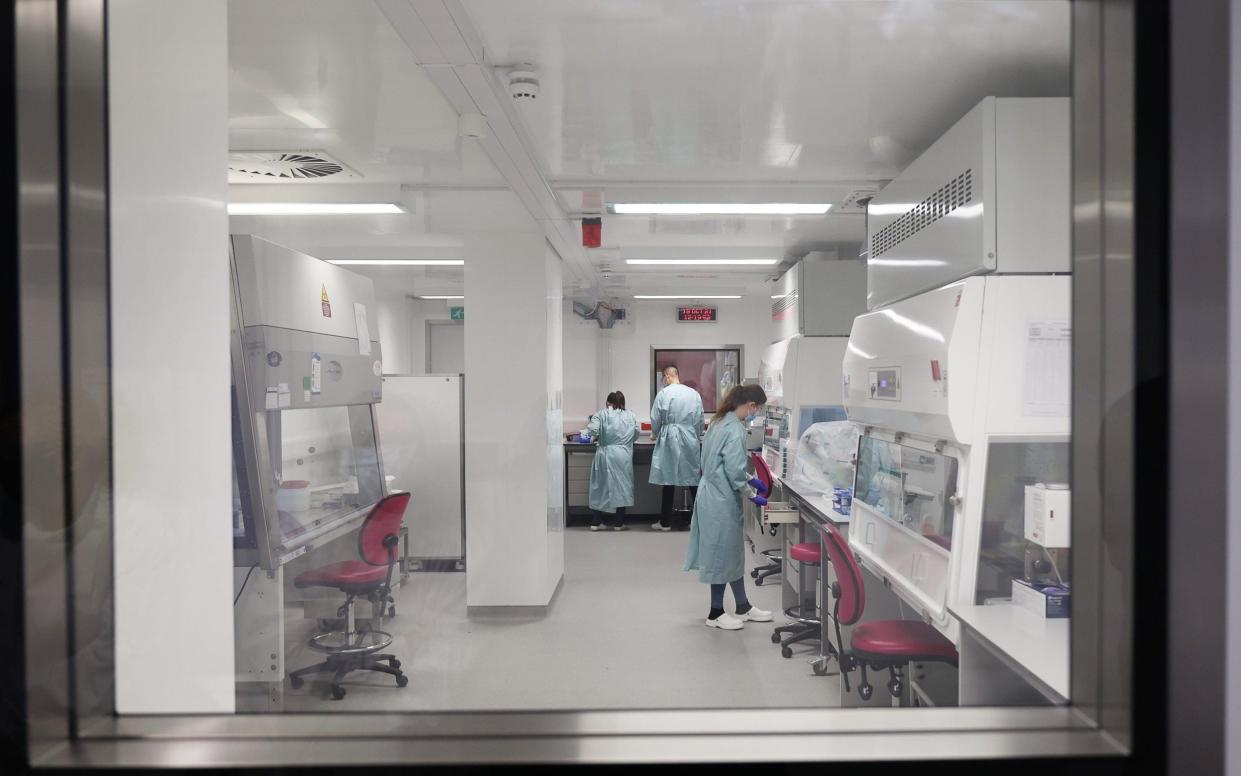Revealed: UK and WHO working on global system to update Covid shots

UK regulators are working with the World Health Organization (WHO) to devise a central system to update Covid vaccines, much like the current process used for flu jabs, The Telegraph understands.
Experts from the Medicines and Healthcare products Regulatory Agency (MHRA) joined a meeting with agencies from Europe, the US and beyond last week, where early plans for closer collaboration on variant-proof Covid jabs were discussed.
The WHO is expected to be central to this process, emulating a system currently used to decide on “strain updates” for flu shots, which are updated every six months.
Discussions come amid mounting concerns that a fragmented approach to future-proofing Covid shots would be counterproductive, reduce manufacturing capacity, exacerbate vaccine hesitancy and worsen already vast imbalances in access to jabs worldwide.
While data suggests current vaccines are less effective in the face of the highly mutated omicron variant, shots still provide a very high level of protection against severe disease.
Scientists say it is not yet necessary to tweak existing jabs, but warn it is almost inevitable that a vaccine-evading variant will emerge. Creating a global mechanism to make decisions about how and when to introduce these next generation jabs will be “critical”, they add.
The Telegraph understands that last week, the MHRA took part in a meeting under the umbrella of the International Coalition of Medicines Regulatory Authorities (ICMRA) – which has some 24 members – to discuss how these Sars-Cov-2 “strain updates” should take place.
Other agencies involved in the roundtable include the European Medicines Agency (EMA) and the US Food and Drug Administration (FDA).
Modelled on influenza strain selection
Regulators hinted the WHO would take the lead on deciding “strain updates”, as happens for influenza. The UN health agency has already formed the Technical Advisory Group on Covid-19 Vaccine Composition – or Tag-Co-Vac – for this purpose.
“Tag-Co-Vac was set up basically to advise WHO, and for WHO to advise the world, on when there will be a need for a change in vaccine composition – and if so, what would be the strain that should be used,” Dr Soumya Swaminathan, chief scientist at the WHO, told The Telegraph.
“This, in a way, is modelled on the work the WHO has done for decades on influenza vaccine strain selection, but of course we’re in a different situation to influenza as it’s a new virus.”
She added that participation from governments, pharmaceuticals and regulators is likely to be voluntary, rather than via a binding agreement, as these take years to put in place.
“What would not be good would be for Company A to say ‘we’ve got this new vaccine that’s really the best’, and for a couple of countries to go ahead and switch,” Dr Swaminathan said. “But I think that there seems to be less risk of that because of the discussions we’ve had with regulators… the positive here is that the regulatory agencies are very aligned with the WHO.”
She noted that, although pharmaceutical companies are rightly working on variant-proof vaccines already, these could not be used without regulatory approval, which is why their cooperation is so critical.
A spokesperson for the MHRA added: “As a leading global regulator, we are working closely with other regulators across the world, including US, Europe and WHO to ensure that Covid vaccines that protect against new variants are made available as soon as possible, without compromising on safety, quality or effectiveness.
“This general approach is based on the tried and tested regulatory process used for seasonal flu vaccines, for which annual modifications are needed to match the strains of flu viruses circulating each year.”
Yet although this decision-making process may mirror the system for flu, it is highly unlikely strain updates will take place as regularly.
Tag-Co-Vac is drawing up a list of criteria to guide decisions about updates, but the key focus will be whether or not protection against severe disease and death drops significantly.
Three key approaches to update shots
Dr Swaminathan said there are three main approaches for next generation vaccines: another ‘monovalent’ vaccine which targets a single variant; a ‘multivalent’ vaccine which could protect against several strains at once; or a pan-coronavirus vaccine.
The last option, though the most complicated to develop, would be the “ideal”.
“Not only would it protect people from current existing circulating variants, but from future variants – and it would be broadly protective across beta coronaviruses [the family of pathogens that includes Covid, Mers and Sars-1],” said Dr Swaminathan.
Some experts have warned a new vaccine that provides broad protection against many different coronavirus variants is at least a couple of years away due to “core scientific challenges”.
Dr Swaminathan added that alongside potential scientific stumbling blocks, regulators and pharmaceuticals may also need to develop innovative clinical trials - as so many people have now had vaccines, traditional phase two and three trials will need to be adjusted.
Shifting manufacturing could also present difficulties, and some vaccine technologies will be much easier to update than others.
“But I think, you know, thank God the WHO has experience doing this for the flu,” she said. “And the fact that it’s worked well for so many years and regulators, manufactures – everybody goes with the WHO guidance on flu, it just helps everyone to have that guidance.
“So I think that’s the direction with which we’re heading with this, and hopefully we should try to really focus on getting it done. There are a lot of unknowns, so it’s quite challenging for Tag-Co-Vac… but again, we’re lucky we’re able to access the best experts from around the world,” Dr Swaminathan said.
Protect yourself and your family by learning more about Global Health Security

 Yahoo News
Yahoo News 
